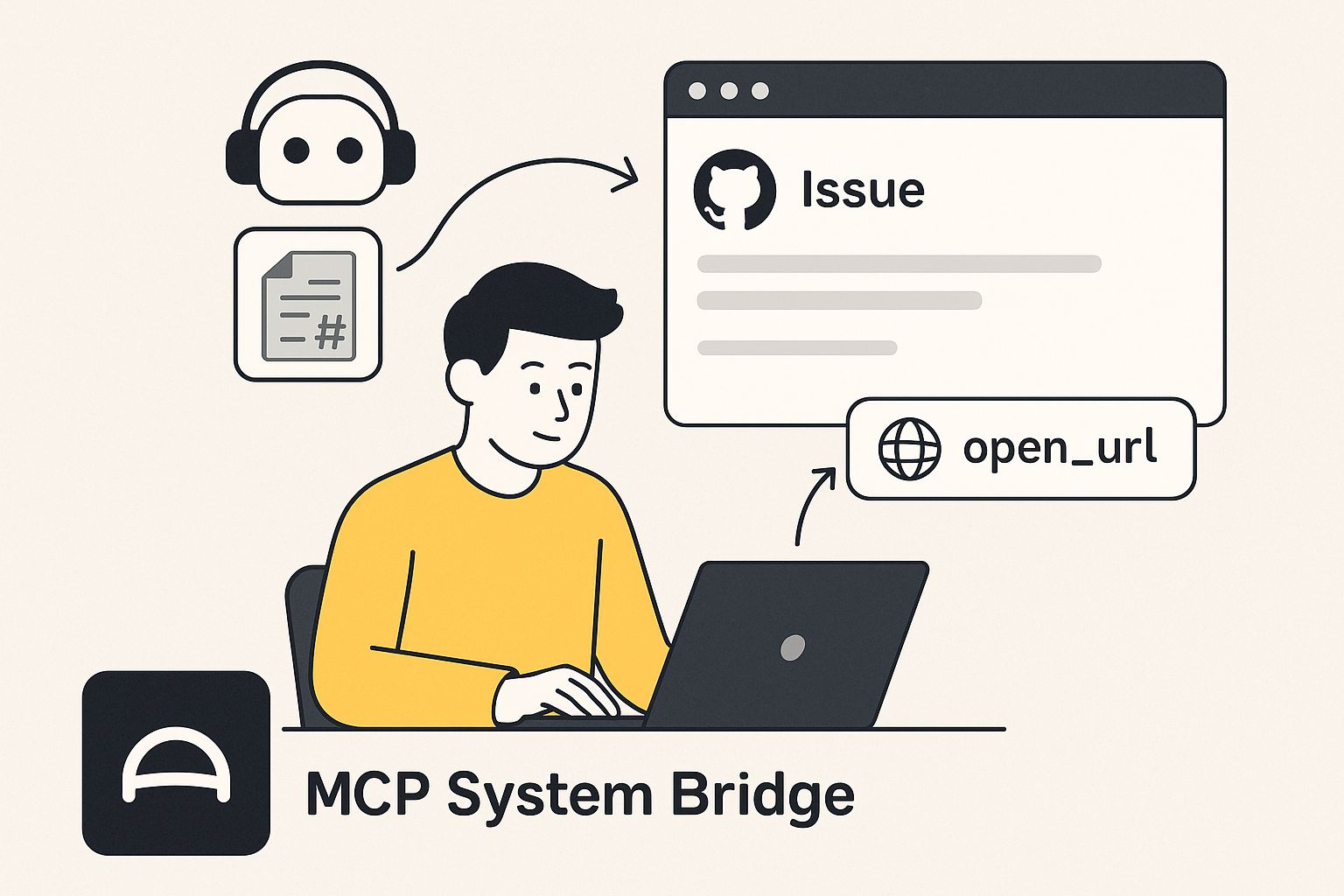A cross‑platform MCP server that gives AI models native OS super‑powers
 Visit Project
Visit Project MCP System Bridge is an open‑source server that implements the Model Context Protocol (MCP) to expose native operating‑system capabilities—like opening URLs or copying text to the clipboard—to AI models in a secure, declarative way. Built entirely in Python 3.12+ with FastMCP and Pydantic v2, it runs identically on Windows, macOS, and Linux, making it an ideal automation companion for any developer workstation or server environment.
My Role in the Project
As the project’s creator and sole maintainer I:
- Designed the full architecture, choosing FastMCP for protocol compliance and Pydantic for strict data validation.
- Implemented every core tool (
open_urls,copy_to_clipboard, andget_current_date_info), ensuring fault‑tolerant execution and detailed per‑item reporting. - Automated packaging & releases via GitHub Actions, Hatch, and UV, enabling one‑command publishing to PyPI.
- Wrote comprehensive tests and Ruff rules to guarantee code quality and cross‑platform reliability.
Technical Details and Interesting Aspects
Architecture
| Layer | Technology | Highlights |
|---|---|---|
| Protocol | 🧩 Model Context Protocol (MCP) | Standardised JSON schema for AI tools; all tools are declared readOnlyHint=true for safety |
| Server | 🚀 FastMCP (ASGI) | Ultra‑light wrapper over Starlette, <100 µs median latency |
| Validation | ✅ Pydantic v2 | DateInfo model with 23 granular date/time fields; strict mode ON |
| Runtime | 🐍 Python 3.12–3.13 | Uses the new tomllib, Pattern Matching, and drowning in 🚀 speed |
Core Features
open_urls(urls: list[str]) → dictAuto‑corrects missing schemes (addshttps://), validates each URL withurlparse, opens them with the system default browser, and returns a per‑URL success map.copy_to_clipboard(text: str)Cross‑platform clipboard writes viapyperclip; atomic operation with descriptive error handling.get_current_date_info()Returns a richDateInfoobject with ISO strings, Unix timestamp, day♨year metrics, quarter, leap‑year flag, and more—perfect for temporal reasoning.
Tooling & Dev Experience
- Hatch + uv for deterministic dependency management and builds.
- Makefile targets for install, lint, and tests (
ruff check --fix+pytest). - GitHub CI: cached uv installs on Ubuntu, automated version bump + PyPI publish when
pyproject.tomlchanges. - PyPI Metadata: Production/Stable classifier, OS‑independent wheels, both CPython & PyPy.
My Impact on the Project
- Delivered a single‑binary CLI (
mcp-sys-bridge) that anyone can install withpipx. - Enabled safe OS automation for AI agents, reducing development friction for tool invocation.
- Fostered community adoption through detailed docs, readable code, and semantic versioning (v0.1.0 → v0.1.4 in two weeks).
Conclusion
MCP System Bridge bridges the gap between AI models and the operating system, empowering automation workflows while keeping security front‑and‑center. Its polished developer experience and robust cross‑platform support exemplify my commitment to building reliable, production‑grade developer tools.